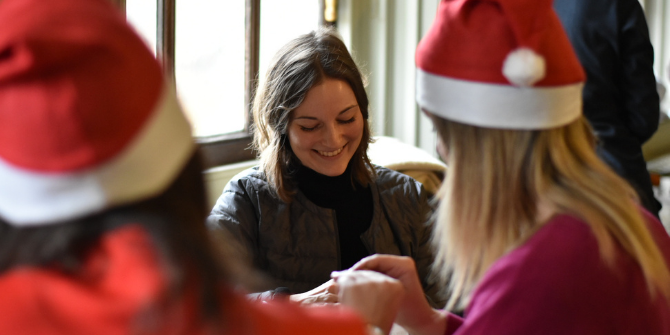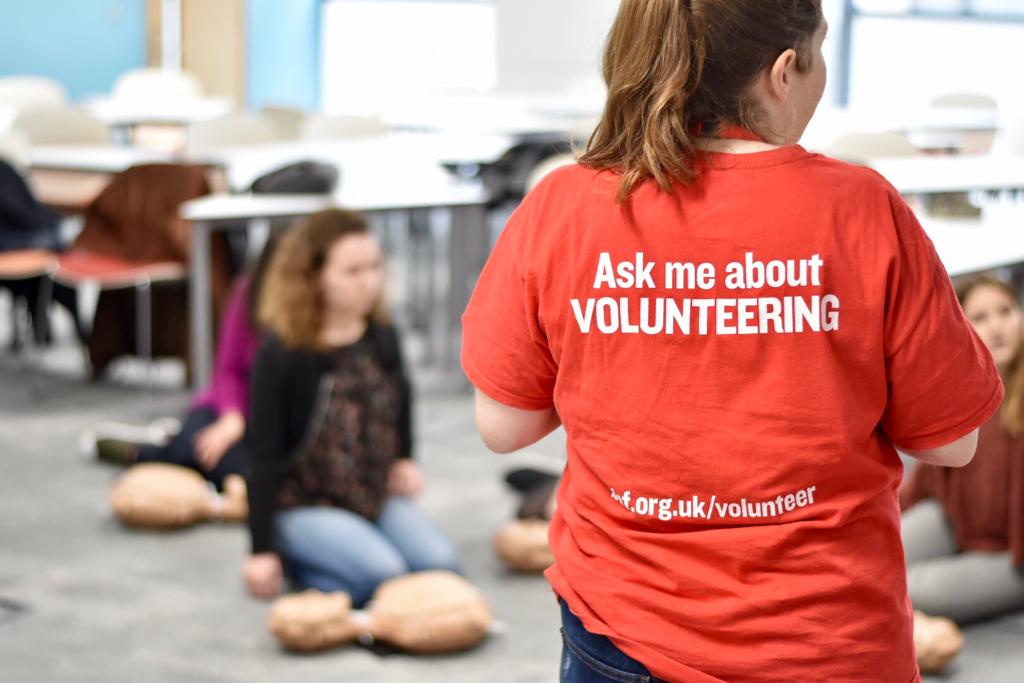Amalia’s background is in primary education. She has been working in roles supporting and promoting volunteering in the third sector since April 2018. She currently works as a Volunteer Services Coordinator at an NHS Trust, volunteers for various projects and has recently been elected as a Volunteer Manager Trustee at the board of two charities. In this blog, she discusses insights from a workshop she attended on Human Values and Volunteering (organised by Reach Volunteering and delivered by Common Cause Foundation) and a presentation from David Coles (LSE Volunteer Centre Manager) and Mariana de Viera Rocha (UWL Volunteering and Civic Engagement Manager).
The main learning for me was that most people declare that they are driven by intrinsic values such as love, social justice, equality – in other words to bring positive change to the lives of our loved ones, their communities and the world we live in. However, when we think of what drives other people we assume it’s extrinsic values such as wealth, power, influence.
Hearing about these findings reminded me of a presentation during a myth-busting session on student volunteering delivered by LSE’s Volunteer Centre Manager, David Coles. During that session most of us assumed students volunteer to enhance their CVs. David revealed that most students stated the primary reason that drives them to volunteer is to serve a cause that is important to them.
If we feel others align with intrinsic values we are more likely to be active citizens, engage in our communities, campaign and support causes – which would include volunteer involvement. But if we don’t, this holds us back from acting inline with our intrinsic values. It made me think about how we are trying to recruit and pitch volunteer roles – “enhance your CV”, “gain new skills”, “increase your employability” etc. Do these phrases feature more than “make a difference”, “help others”, “improve a life/service”? Are we, as volunteer engagement professionals contributing to this vicious circle or underestimating people which then holds us back as a society from acting inline with our intrinsic values?
When I first started working at a volunteer centre, I supported residents with matching them with suitable volunteer roles. To do so, I needed to explore why they wanted to volunteer and address their motivations. Most of the time potential volunteers wanted to support their local communities and they were asking us to show them what is available for specific causes. Or they were trying to put their existing skills in use within the local community. This willingness of wanting to help and contribute towards improving lives and communities around us via volunteering was highlighted during lockdown. Despite the uncertainty there was a sharp increase of people wanting to offer their skills and time to deliver essentials and support their communities during those times. During the pandemic we contacted a survey to explore the motivations of those who volunteered and the vast majority said they were involved to help others and make a difference. Later in my role in Diabetes UK, many of our volunteers who are living with the condition were extremely involved not only in our volunteering activities but also with as many relevant panels and commissions they could locally to advocate for outstanding patient care and support for their peers.
Working in a borough-wide organisation also allowed me to get to know and appreciate the wide range of voluntary organisations in the area, including completely volunteer led projects.
I recently read an article on how volunteering can play the role of the third place (with home being the first place and work the second place). If our societies, at least in this part of the world, have lost structures where discussion and action upon our shared values can be held, volunteering can definitely become this place – and perhaps that would make a much bigger motivation. A pitch like “meet like minded people and work towards a common cause” might result in more people expressing an interest in volunteering at your organisation, as opposed to “references provided” and “gain experience in this sector/job”. This will probably also make a difference in meaningful engagement and retention and ultimately on the impact your volunteering structures will have in serving your organisation and its mission – perhaps all these might help us hit the spot at these times of volunteer recruitment crisis.
If Amalia has inspired you to volunteer, check out one of our other ongoing opportunities or book a one-to-one with David Coles, the Volunteer Centre Manager if you have more questions. And why not follow us on Twitter, and Instagram to stay up-to-date with our events and opportunities and read our blog for more volunteering tips and stories.





